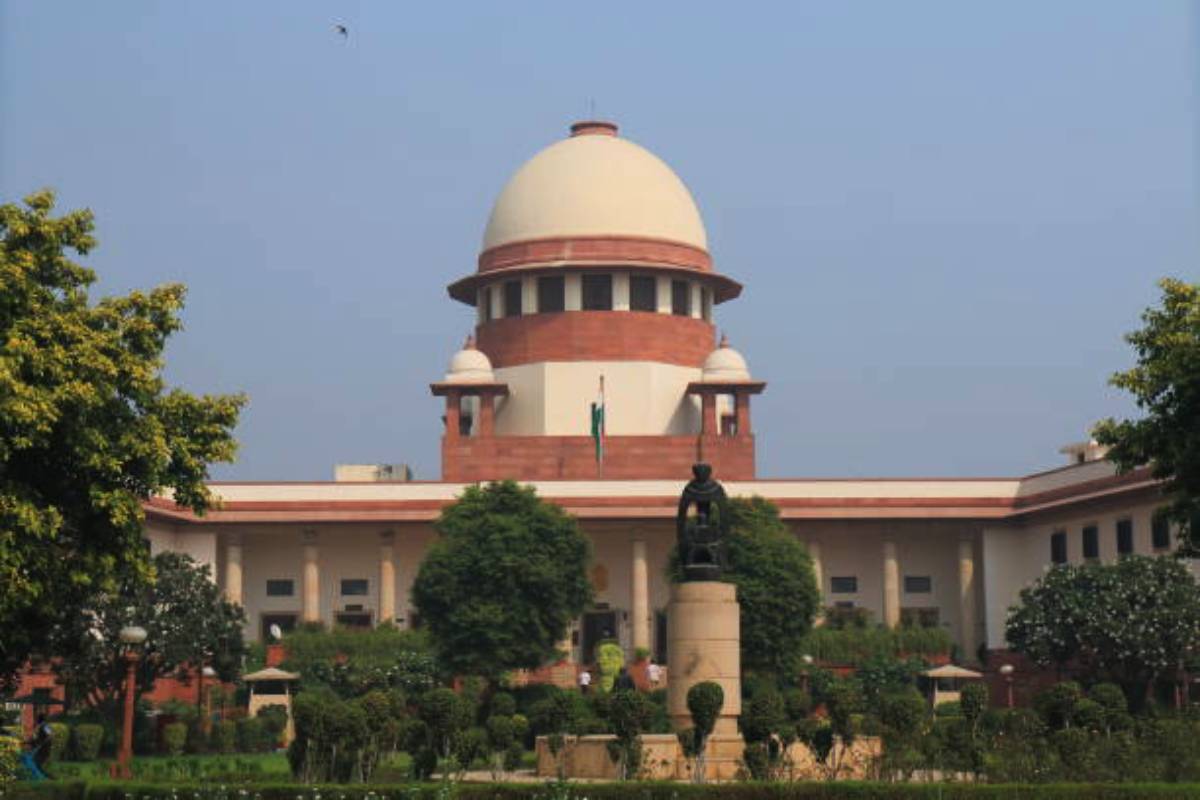The Supreme Court on Thursday made some strong observations against the manner in which the Karnataka government scrapped the 4 per cent OBC quota for Muslims and placed them under the Economically Weaker Section (EWS) category, saying the foundation of the decision-making process is “highly shaky and flawed”.
The Karnataka government undertook before the apex court that no admission or appointments will be made till April 18 on the basis of March 27 government order (GO), which scrapped the 4 per cent quota for Muslims.
Advertisement
A bench of Justices K.M. Joseph and B.V. Nagarathna told Solicitor General Tushar Mehta, representing the Karnataka government: “Prima facie, we are telling you, the first thing is that the order which you have passed… appears to suggest that foundation of decision making process is highly shaky and flawed… it is on an interim report, the state could have waited for a final report that is one aspect. What is the great urgency?”
Mehta submitted that the court should allow the state government to file its reply in the matter and the admissions will begin in May and nothing is going to happen if matter is heard next week either on Monday or Tuesday.
“Please allow me to file a reply, these are original proceedings. There was no empirical data as a religion….. they (Muslims) were included on the basis of religion. It is not something extraordinary. Can’t it wait till April 17?”
Senior advocates Kapil Sibal, Dushyant Dave, Prof Ravivarma Kumar, and Gopal Sankaranarayanan appeared for petitioners L Ghulam Rasool and others.
Dave argued that staying the government order would mean Muslims continue to get the benefit of the reservation of four per cent and “if not, they will lose out in education and employment… Why should we lose out at all ? this notification is per se illegal and unconstitutional”.
Sibal said since early 1990s, they were backward and now they put them in general category and after 23 years, Muslims are in general category without a study and this is a direct violation of Article 14, and also the entire notification is violative of Article 14 and it is taking away reservation.
“It is like I am poor, so I will be in the general category”, he added.
Dave reiterated there is no study to support scrapping of Muslim quota.
After hearing detailed arguments, the bench said the decision was prima facie based on fallacious assumption and was vitiated as it is based on an interim report of a commission.
Though, the apex court did not stay the scrapping of the 4 per cent Muslim quota but made several strong observations against the Karnataka government, which forced the state government to give an assurance that it won’t undertake any admission to educational institutions or make appointments in terms of its March 27 order.
The bench orally observed: “A large number of people were denied the benefit of reservation by a stroke of a single decision”, and indicated at passing an interim order staying the GO scrapping the Muslim quota.
At this juncture, Mehta submitted that none of the candidates in admission to educational institutions or in appointment for a job would be affected until April 18 in compliance of its order, and stressed that nothing irreversible will be done based on its order ending the 4 per cent quota to Muslims and giving 2 per cent each to Vokkaligas and Lingayats.
Senior advocate Mukul Rohatgi, representing the Vokkalinga and Lingayat community members, strongly opposed any interim order in the matter. Rohatgi said unless something is going to happen, it would be highly unfair if stay is granted.
Justice Joseph said that the government order “appears to be in the teeth of the commission’s report”.
Justice Nagarathna noted: “Vokkaligas and Lingayats, they had a percentage of reservation. It is not that they were without any reservation. Today, the scenario is four per cent… there was reservation for a particular group of backward classes that is totally knocked out, it becomes zero.”
Mehta submitted that there is no appointment or admission process going on and it may be unfair, if stay is granted. The apex court allowed the state to file a reply by Monday and posted a hearing on Tuesday.
The petitioners claimed that Muslims community has been treated as socially and educationally backward in Karnataka since 1921. They further argued that there was no empirical data to establish that now they are socially and educationally advanced.
The Karnataka government announced two new categories for reservation in jobs and education and scrapped the four per cent quota for Muslims, which was divided between the Vokkaligas and Lingayats. Muslims eligible for quota have been categorised under economically weaker sections now.











